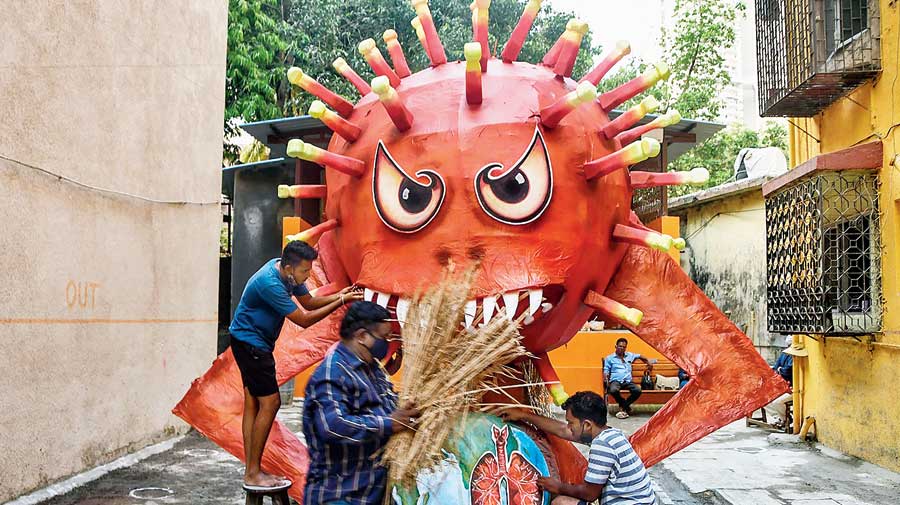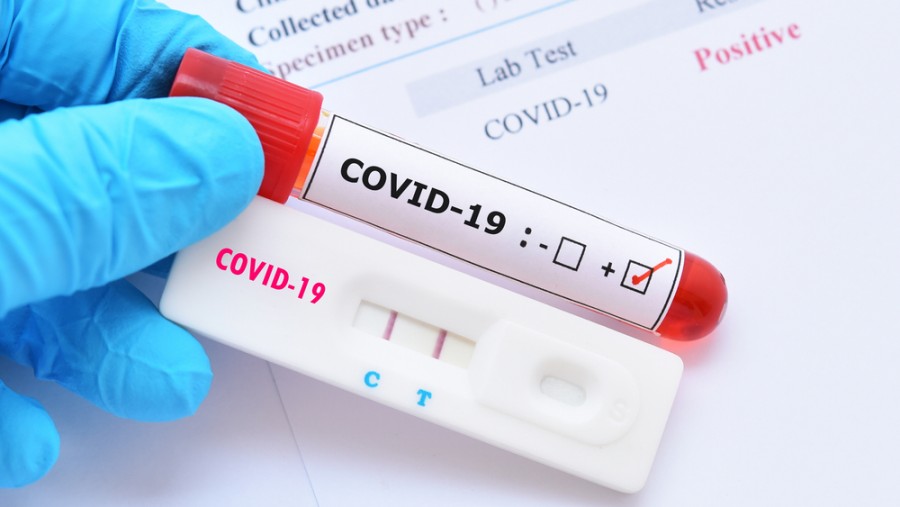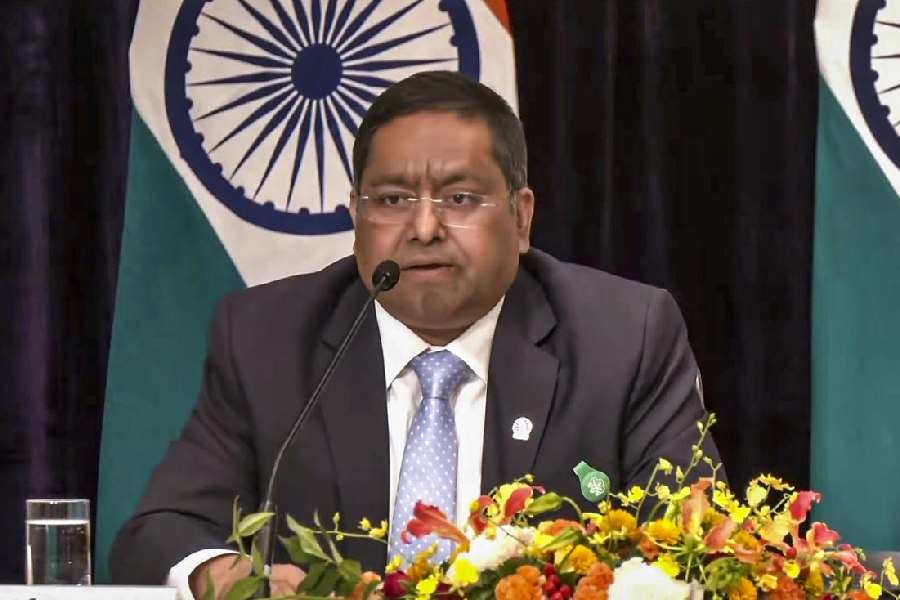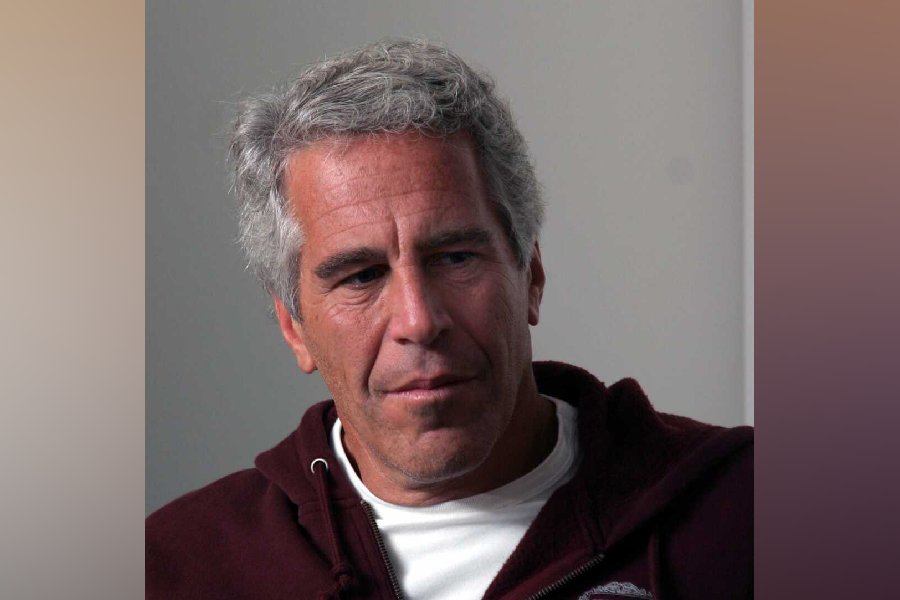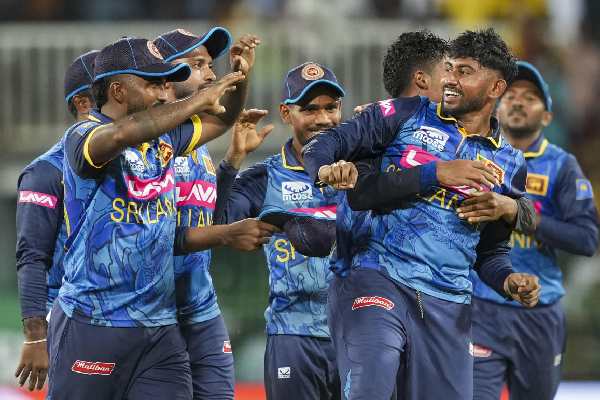Health researchers in Chennai and Pune plan to systematically test blood samples from newly infected Covid-19 patients to determine if re-infections are contributing to India’s sharply rising second wave of the epidemic.
The National Institute of Epidemiology, Chennai, and the Byramjee Jeejeebhoy Government Medical College, Pune, independently plan to look for IgG antibodies — a sign of earlier infection — in blood samples from confirmed Covid-positive patients.
“Such studies will be very useful — we need to know who is getting infected,” said Dileep Mavalankar, a senior infectious disease epidemiologist with the Indian Institute of Public Health, Ahmedabad, who is not associated with the Chennai or Pune efforts.
The initiatives come amid what the Union health ministry described on Saturday as India’s “sharpest rise” in weekly new Covid-19 cases and deaths since May 2020 — a 7.7 per cent rise in new cases and a 5.1 per cent rise in deaths.
India’s seven-day average of daily Covid-19 cases has nearly doubled in less than two weeks — from 24,400 on March 15 to 50,500 on March 26 — and the daily deaths have increased from 131 on March 15 to 291 on March 26.
The epidemic’s current resurgence in places — such as Ahmedabad, Calcutta, Chennai, Mumbai and Pune — that were among the hardest hit during the previous wave in 2020 has puzzled researchers and triggered speculation about possible re-infections by mutated versions of the coronavirus.
“It would be premature to say for now that variants are contributing to either re-infections or to the observed surge in different states,” said Samiran Panda, head of the epidemiology division at the Indian Council of Medical Research, the country’s apex health research agency.
Doctors and health researchers know from studies worldwide over the past year that Covid-19 re-infections are rare. Among India’s more than 11.9 million cases, researchers have documented confirmed re-infections in less than 100 cases.
“However, re-infection, although rare at this point, is a reality,” Panda told The Telegraph. “But people need to remember that protective measures such as wearing face masks, avoiding crowds and frequent hand-washing reduce the risk of both new infections and re-infections.”
The plan by the Chennai and Pune researchers to look for IgG antibodies in newly infected patients can be tricky and challenging to interpret. People infected by the virus develop antibodies anyway and the samples should ideally be taken at the time of Covid-19 diagnosis or as close to it as possible.
“We would ideally need at least a few hundred samples to make meaningful interpretations,” said Manoj Murhekar, director of the NIE, an institution under the ICMR that plans to collaborate with the Chennai city corporation for the study.
A senior health researcher in Pune said that though there were rare anecdotal accounts of re-infections, the IgG study would help quantify the proportion of re-infections, if any, among the newly infected patients in areas under fresh epidemic waves.
While India’s vaccination campaign is expected to enhance the number of people protected from the infection, officials underline that vaccinated individuals might still be able to pass on the infection.
“The vaccines in use are able to prevent severe forms of the disease after infection, but might not prevent people from acquiring the infection,” Panda said.
Ministry directive
The health ministry on Saturday asked 12 states, including Bengal, to bolster public health responses and enforce precautionary behaviour by the public amid concerns that only 44 per cent of people wear masks and one infected person could spread it to 406 others over a month.
Health secretary Rajesh Bhushan, in a videoconference with local authorities from the 46 hardest-hit districts, including Calcutta and 24 North-Parganas in Bengal, called for increased testing, efficient isolation of cases and quarantining of contacts, and improved hospital preparedness for a surge.
Twenty-five of these 46 districts are in Maharashtra and account for nearly 60 per cent of the 332,000 new cases detected across the country over the past week. Ahmedabad, Amritsar, Bangalore, Bhopal, Chennai, Durg, Nagpur, Pune, Raipur, Surat and Thane are among the most affected districts.
The ministry has flagged the high fatality rates in Chhattisgarh and Punjab and urged authorities to get doctors to ensure that patients with severe illness are moved to hospital in time and that doctors adhere to standard treatment protocols.
The ministry has also asked the states to accelerate the vaccination campaign to immunise all those in the priority population groups in the districts with large numbers of Covid-19 cases as early as possible as an aid to the containment measures.

